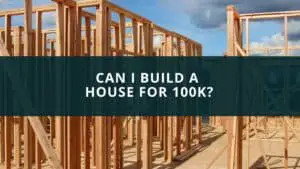If you’re a handy person, you’ll agree that a shed is one of those structures ideal for a residential property with plenty of space. It’s a great place to store equipment, and you can equally work there. But determining where to build a shed on a property is one of the questions that any homeowner has to answer. So, can your neighbor build a shed against your fence?
Zoning codes determine whether your neighbor can build a shed against your fence. It won’t be possible if the zoning codes limit the distance between the property line and any building. Even if it doesn’t, you can prevent the construction and sue the neighbor for any property damage due to the shed.
Although it might be possible for your neighbor to build their shed against your fence in some cases, it’s not advisable. Anyone planning to build a shed should generally consider four things. Here, we discuss whether neighbors can build a shed against your fence and what to do if that should happen.
Quick navigation
Zoning Codes and Shed Construction
Whether your neighbor can build a shed against your fence depends on your location’s zoning code. In most cases, the zoning codes will prohibit building directly on the property line and impose a minimum limit between the shed and the property line. Since your fence will be directly on the property line, it’ll be against the zoning code to build it against the fence.
However, this law doesn’t apply everywhere. Sheds are generally accepted as permitted developments. This means that the builder doesn’t have to get authorization from the municipality before you start building.
But even permitted developments still have their own rules that the builder must comply with. Such rules usually have to do with size and positioning. For example, the shed shouldn’t take up more than half of the yard. It also has a maximum height.
What To Do If Neighbor Builds Shed Against Your Fence?
If your neighbor wants to build their shed against your fence, you can always try to prevent it from happening. If they come to you, simply telling them “no” should be enough. But there are also sufficient reasons to back up your decision. They include:
- Effect on privacy and accessibility
- It could affect utility lines
- Possible damage to property
- Construction may destroy a valuable structure
- Run-off rainwater from the shed roof could damage nearby property
If you don’t give your neighbor permission and they still go ahead to build a shed, you can report them to the local authority while the work is still ongoing to stop it. Even if they have completed the building already, you could still report them, and the local authorities will require them to remove the shed. You only have to show that the shed may cause damage.
However, deciding not to report doesn’t mean your rights are extinguished. If there’s damage to your property due to the shed, it’ll be the neighbor’s duty to fix the damage, and if they refuse, you can sue them to compel them.
Things To Consider When Building A Shed
There are several important things to consider when constructing a shed. They include:
1. Accessibility
Anyone building a shed has to consider its accessibility. There should be enough room between the fence and the shed so it’ll be easy to mow between the two structures. It’s also important to position the shed near a walkway or pavement so you can easily access it from the house.
2. Breathing Room
There must be breathing room between the fence and the shed. If there isn’t, mold, mildew, and rot will grow in the shed, especially in places with high humidity. This is a good reason to kick against your neighbor’s decision to build a shed near your fence.
3. HOA and Zoning restrictions
There could also be restrictions and requirements from the Homeowners Association and Zoning Codes. If other homeowners are against the construction of a shed in a neighborhood, it’s usually impossible to go against their wishes.
Of course, the size of the shed determines if the Zoning codes will apply. If the size exceeds the permitted development size, you’ll have to get permission from the local authority, and they’ll likely inform your adjoining neighbors about the shed. So, they’ll have the chance to review and give their comments on the construction before it happens.
4. Neighbors
If you’re planning to build a shed, you might want to talk to your neighbors first. This is especially important if the shed might have a significant impact on their property now or later in the future. For example, when building a shed near or against the fence. Doing so without communication could damage neighborly relations. In some cases, it could even lead to legal action, and the neighbor might win. So, let the neighbor in on your plans early on and explain how it won’t affect their property.
Is it advisable to build a shed against the fence?
Building a shed next to your neighbor’s fence could damage the relationship between you and your neighbor, especially if the neighbor was against the construction. Even if you built the fence, it could still affect the neighbor’s property since the fence is usually on the boundary line.
It could also cause damage to the fence or property of the neighbor. In such cases, you will likely be the one to cover for any damage to the neighbor’s property. When a shed is built so close to the fence, there’s a high possibility of damp build-up. This results from the shed not having enough room to air out and humidity accumulating within the space. So, it’s always best to leave sufficient gaps between the shed wall and the fence to avoid damage.
But if you have no option but to build your shed next to your neighbor’s fence, then you should consider building a pressure-treated fence which would be better and less likely to cause damp build-up.
Before building a shed next to your neighbor’s fence, ensure that you make inquiries at the local building department and confirm the legality of doing such. It’s best to ask before starting to avoid any issue that could lead to you having to demolish the shed later on. This could happen if the shed is considered illegal or hazardous.
In Conclusion
Neighbors shouldn’t erect a shed against your fence even though some areas might permit such. But if they plan to, they should normally get permission. Where they fail to do so, you can always file complaints with local authorities or even sue if there’s damage to your property.



